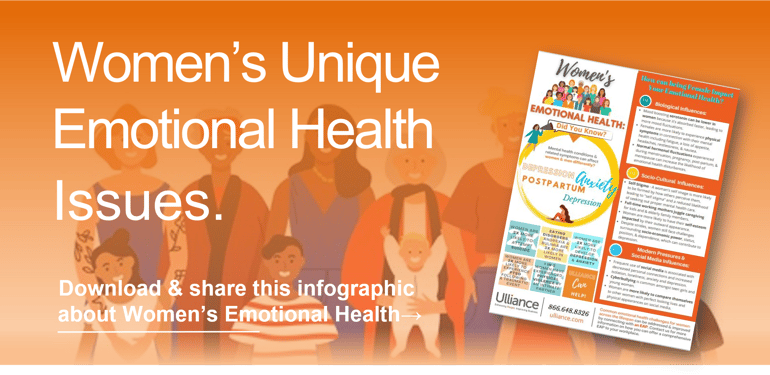A day will come when someone says, "Remember the COVID pandemic?" And a voice, probably a young voice, will ask, "Pandemic? What's that?" But until masks are a thing of the past and COVID is no longer a threat, conversation about coping with and adjusting to life after the pandemic will continue.
COVID has disrupted the way we interact with the world. From Socializing to shopping to working, nothing is as it was. But it is by living through fear that we learn to move on. By conversation and communication, we develop the strategies to adapt to a "new normal." Listening to each other's experiences and trading judgment for acceptance will build the resilience needed to walk through life in a new direction.
Making Social Anxiety Adjust to You
The last year has been one change after another with no precedent on what works and what doesn't. Do you trust social media? The news media? The doctors? The patients? How are you supposed to make decisions for yourself and your family when no one knows the answers?
In a time, rife with frantic people, confused leaders, loss of loved ones and everyone in survival mode, anxiety has reached an all-time high, even in people who aren't ordinarily anxious.
Isolation, a previously unacceptable practice, became a way of life. People lost touch with coworkers, kids lost touch with friends, friends went their separate ways, and extended families couldn't share special moments.
Now, it's like someone threw off the covers, and as you squint in the bright morning sunlight, you feel blinded and confused by what is expected of you.
You are likely among the millions who are thinking, "enough changes already!" We all know change is part of life, and there is no getting rid of it. But we can learn to manage the anxiety it causes.
"It is said that culture is like the air we breathe. We don't notice it until it's gone" - Unknown.
Tips to Manage Post-Pandemic Social Anxiety
• Take your time making changes.
• Acknowledge all the losses caused by COVID, such as time with family, time away from school, less income, loss of loved ones. Allow yourself time to grieve these losses.
• Gently ease yourself back into going to the office and plan an enjoyable activity for the end of the day.
• Mask wearing, social distancing and vaccination are hot topics for many people. Get clarity around what is comfortable for you and be confident in expressing those preferences in a kind and respectful way to others you interact with.
• Allow yourself to be cautious about going into crowded areas. For many, it is scary to think about being around a lot of people. You don't want to get sick or get people you love, sick. It's ok to be cautious.
• Exercise every day. It relieves tension, stress and builds your immunity.
• Get enough sleep and eat well and talk to a mental health professional about any feelings of depression or anxiety you may be experiencing. Contact your organization's EAP.
It is expected you will feel anxiety about how different the world looks now and where you fit in this new place. But taking things slowly and allowing yourself to adjust to the changes mentally will help you adapt and enjoy life sooner.
Setting Goals for the Future in a Pandemic
Goals keep you focused on the future. They give you motivation and a purpose for waking up every morning because you are working towards something, and you make measurable progress as you move forward.
You set goals based on what you want in life. What level of success do you want to achieve? Do you want to attend college? What is your dream job? Where do you want to live in the world?
Without goals, you feel disjointed, lost, unmotivated, and like you don't even want to bother getting dressed every day. So once again, you must shift how you go about setting goals and measuring progress.
When deciding on your goals, begin with where you are today, this very minute. What do you want? What do you need to get it? It can be as simple as establishing a productive morning routine. Write down small goals like beginning the morning with a walk two days a week with a goal of getting to five days a week.
Be mindful of how time has changed since the pandemic. Many people don't wake to alarm clocks anymore, and times for lunch hours and meetings have shifted based on remote worker's availability. Be flexible.
Tips for Adjusting Your Goals During a Pandemic
• Avoid comparing yourself to others – There are always exceptions to the rule. Some people are doing exceptionally well with this quarantine living of life. Writers, scrapbook makers, project finishers, and the like utilize the time to complete projects that started long ago. That's their thing. It may not be yours. Stay focused on yourself and on what is realistic and necessary for you.
You also can't compare your current life goals to those from your past. Dr. Manly, a therapist, working with people suffering from depression from COVID, says, "This is an exceedingly difficult and depressing time for many people. Be kind and compassionate with yourself, and don't hold yourself to standards of what you would've done at any other time of life."
• Have one or two or ten backup plans – One ideal plan for your future is a nice thought. However, if something happens and that plan can't come to fruition, it will likely hit you much harder than it would if you just detoured to your next objective.
For example, say you want to buy a house in January 2022. Create three different plans, one for purchasing the home as planned, one in case you must wait extra months because of reduced work hours due to covid restrictions, and one in case buying the house doesn't work at all next year. You will be able to move forward and be prepared to deal with the emotions that will result from each outcome.
• Deal with Disappointment – Processing the disappointment you will feel when things don't work out the way you had hoped will help you move on. Everyone gets disappointed in life, and the best way to handle it is to allow yourself to feel it and talk about it. You can then set about making new, achievable goals.
• Work on your relationships – Spending time with roommates, spouses, live-in partners, or your family members has been an unavoidable occurrence. The relationships you have with them will affect your life every single day. It makes sense to improve these relationships by learning effective communication skills, finding time to be together alone, and carving time for family activities.
When your home life is a safe, happy place to be, everything else feels doable.
People's outlook on the world has changed, and things that once seemed critically important now feel trivial. It is difficult to look ahead and visualize contentment, happiness, peace, and normalcy because no one knows what that looks like anymore.
Step out into the post-covid world with a sense of adventure. Spend this time getting healthy and learning to be happy while surrounding yourself with the people you love.
The world may look different than you are used to, but it still looks surprisingly good with the right lenses.
Hundreds of organizations support their employees through The Ulliance Life Advisor Employee Assistance Program (EAP). Investing in the right EAP to support your employees before, during and after they face adverse events will help them and help you. Visit www.ulliance.com, or call 866-648-8326.
When you partner with Ulliance, our Life Advisor Consultants are always just a phone call away to teach ways to enhance your work/life balance and increase your happiness. The Ulliance Life Advisor Employee Assistance Program can help employees and employers come closer to a state of total well-being.
Investing in the right EAP or Wellness Program to support your employees will help them and help you. Visit www.ulliance.com, or call 866-648-8326.
The Ulliance Employee Assistance Program can address the
following issues:
• Stress about work or job performance
• Crisis in the workplace
• Conflict resolution at work or in one’s personal life
• Marital or relationship problems
• Child or elder care concerns
• Financial worries
• Mental health problems
• Alcohol/substance abuse
• Grief
• Interpersonal conflicts
• AND MORE!
References
Celes. (n.d.). 7 Reasons You Should Set Goals. Retrieved from Personal Excellence: https://personalexcellence.co/blog/why-set-goals/
Dr. Elspeth Ritchie. MD. Chair, P. (2021, July 2). How to deal with re-entry anxiety and post-pandemic stress. Retrieved from MedStar Heakth: https://www.medstarhealth.org/medstar-blog/how-to-deal-with-re-entry-anxiety-and-post-pandemic-stress/
Ph.D, K. L. (2021, April 20). Tips for Post-Pandemic Life Beginning the transition toward normalcy. Retrieved from Psychology Today: https://www.psychologytoday.com/us/blog/the-man-cave/202104/tips-post-pandemic-life
Rimon, G. (2020, March 30). Setting Performance Goals During a Pandemic. Retrieved from LinkedIn: https://www.linkedin.com/pulse/setting-performance-goals-during-pandemic-gal-rimon/


